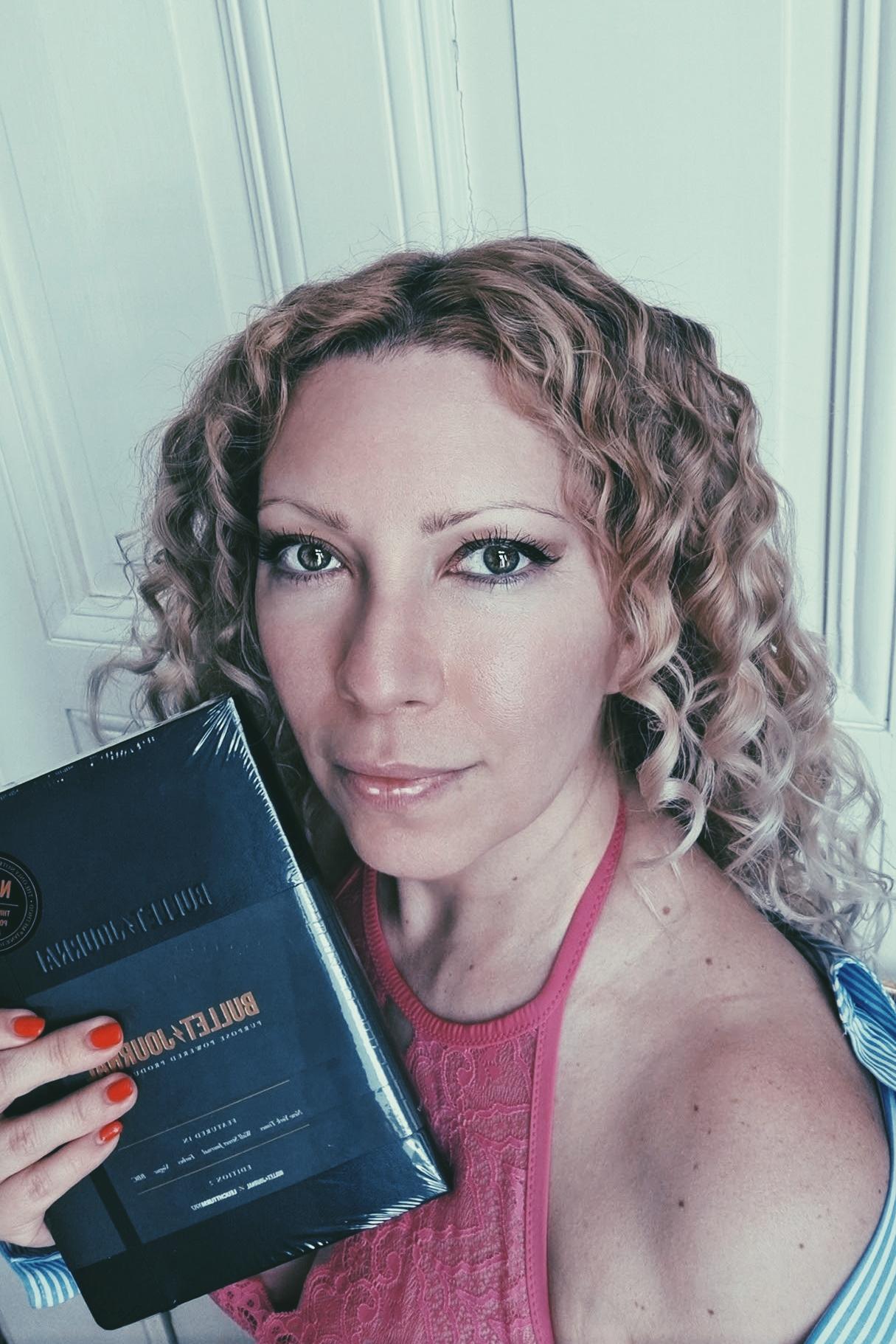Want to start journaling in 2025? Journaling represents an easily implemented method that has provided thousands of individuals the power to understand their thoughts better while managing anxiety and meeting personal development goals. A wide range of accomplished professionals including entrepreneurs artists and therapists point to their regular journaling habits as the foundation of their mental clarity and creative success.
Why does writing by hand generate such profound effects?
The Science-Backed Benefits of Journaling
Research demonstrates convincing evidence that journaling produces positive outcomes. Research demonstrates that the practice of regular journaling helps young adults reduce symptoms of depression to the same extent as cognitive behavioral therapy.

A 2006 study revealed significant depression reductions in subjects who maintained regular journaling habits. People who use this practice develop better mental health outcomes through enhanced experience processing and perspective development. Learn more about the therapeutic aspects of journaling in the full research here.
How Journaling Impacts Your Brain
Journaling on a regular basis stimulates multiple regions of your brain at the same time. The process of writing activates brain activity in your analytical left hemisphere and emotional reflection activates your creative right hemisphere. Through this full-brain activity individuals experience better memory retention while their creative thinking capabilities expand and they achieve more structured thought processes.
Real-Life Transformations
The effects of journaling become apparent when observing personal stories from real people. Jane utilized journaling to successfully handle her move from working as an employee to becoming an entrepreneur. Through documenting her anxieties and aspirations she gained precise business objectives. Evening journaling helped Alex manage anxiety while enhancing his sleep quality.
Different Approaches to Journaling
There’s no single “right way” to journal – the best method is the one that works for you. Here are some popular approaches:
- Bullet Journals: Perfect for organizing tasks and tracking goals
- Morning Pages: Three pages of free writing to unlock creativity
- Gratitude Journals: Daily entries about things you’re thankful for
Embracing Journaling for Personal Development
Doing daily journaling strengthens your ability to make better decisions while increasing your self-awareness.
Through writing, people discover thought and behavior patterns that provide insights they would otherwise overlook. Through consistent reflection people can create secure environments which help them process emotions while developing resilience. Through regular journaling you create a connection with your inner self which allows you to gain deeper understanding of your thoughts and emotions. Writing entries for either five minutes or for an hour accumulates your personal narrative while enhancing your developmental process.
Choosing Your Perfect Journaling Method

Finding the right journaling approach is a personal journey that takes some exploration. People experience powerful journaling benefits through individualized methods that work differently for each person. Your ideal journaling technique will help you achieve your goals because it fits seamlessly into your routine.
Exploring Different Journaling Styles
Your journaling practice can be as structured or free-flowing as you prefer. Here are some proven methods to consider:
- Bullet Journaling: This system works best for visual planners who focus on organization. The Bullet Journal method combines to-do lists with calendars alongside notes into one personal system that can be modified.
- Morning Pages: Start your day by writing three pages of spontaneous thoughts as soon as you wake up. This method clears the mind while generating creative ideas.
- Gratitude Journaling: Every day you should make time to document what you appreciate. A straightforward habit of daily gratitude journaling leads to better mood and perspective.
- Prompt-Driven Journaling: Use writing prompts to explore specific topics or feelings when you need direction and inspiration.
Digital vs. Analog: Finding Your Fit
The choice between digital and paper journaling comes down to your preferences and needs: Digital journal entries allow users to access their thoughts on any device at any moment.
People achieve great results by combining notes apps for their daily quick thoughts and paper journals for evening deep reflections. The right journaling technique depends directly on achieving your specific personal goals. Journaling works best when your chosen method matches your personal objectives. Free writing presents itself as the ideal strategy when you want to relieve stress from your life. A structured bullet journal system will help you better monitor goal progression. Explore different methods and blend elements that feel right for you without any hesitation.
Journaling helps you understand yourself better so you should adjust your approach as you discover what benefits you most.
Matching Your Method to Your Goals
To transform journaling into a durable habit you need to build a solid foundation. Your journaling practice needs an approach that aligns with your natural rhythms which builds sustainable habits over time.
Creating Your Sustainable Journaling Practice

To transform journaling into a durable habit you need to build a solid foundation. Your journaling practice needs an approach that aligns with your natural rhythms which builds sustainable habits over time.
Designing an Optimal Environment
Your writing space can make or break your journaling routine. Find a quiet spot away from distractions where you can focus fully on your thoughts. Keep your journal, favorite pens, or digital device easily accessible so you can start writing without hunting for supplies. Think of this space as your personal writing sanctuary.
Protecting Your Writing Time
Many people struggle to make time for journaling consistently. The solution is blocking out specific times dedicated just for writing. Common approaches include:
- Morning Journaling: Begin every morning with reflective writing and complete this before your responsibilities begin
- Evening Writing: Before going to sleep process your daily events to achieve mental clarity.
Consistency in your writing schedule trumps precise timing when selecting your writing slot.
Overcoming Obstacles
Writer’s block alongside packed schedules can disrupt your practice even if you start with good intentions. When you keep a flexible approach you can easily resume writing the following day after missing your session. Research shows the benefits are worth the effort: Journaling about emotions supports faster healing from injuries and people who write about stressful events show fewer illnesses than individuals who write about neutral subjects.
WebMD provides detailed information about scientific evidence which supports journaling benefits.
Building a Flexible Routine
As you grow and experience life changes your journaling practice needs to remain flexible yet stay true to its essential purpose. Each day use a different journaling method or prompt to meet your changing personal requirements. Create value through your journaling experience instead of sticking to strict guidelines. Little changes can help you maintain your routine for years without losing the best elements that serve you.
Mastering Powerful Journaling Techniques

After establishing your journaling method and routine you can apply tested techniques to enhance the significance of your practice. These advanced journaling methods enable you to uncover deeper understandings while supporting authentic personal development.
Crafting Powerful Prompts
Thoughtful prompts are one of the best ways to deepen your journaling practice. Journaling prompts push you to examine particular themes and emotions so you can gain clarity about areas of your life that need attention. You can begin self-exploration by asking yourself which limiting belief is preventing your current progress. leads to more valuable self-reflection than a basic daily recap.
Here are some effective prompts to try:
- Which achievement from this week fills me with pride?
- What fear stands out as my first challenge while deciding my initial step to confront it?
- How can I perform a simple act of kindness for myself or someone else during today’s hours?
- Thinking about advice I would give my younger self what words would I send back in time?
Structured Exercises for Goal Achievement
When you apply strategic methods to your journal entries you create a powerful instrument for goal achievement. SMART goals help transform large dreams into manageable steps by following Specific, Measurable, Achievable, Relevant and Time-bound principles.
Map out every single part of your goals which will enable you to follow a detailed road to success. Maintain a regular review of your progress to document all successes and problems. The recording process establishes accountability while guiding you to perform regular actions toward your most important goals.
Using Your Journal for Decision-Making
The practice of journaling helps you to achieve a clear perspective when confronted with difficult decisions. List every option and detail their advantages and disadvantages separately. Examine your instinctual responses toward various future directions. Analyze both immediate and long-term consequences that every decision might generate.
By following this method you progress beyond instinctive reactions to achieve more deliberate decision-making.
Regular journaling builds self-awareness and emotional intelligence over time. Research shows that 74% of people who journal report emotional release as a key benefit, while 65% experience better stress management. In fact, one-third of people start journaling specifically to handle stress better. Writing helps you step back and see situations more objectively.
Find more details about journaling’s benefits here.
With consistent practice, your journal becomes an invaluable tool for understanding yourself and creating positive change in your life.
Navigating Common Journaling Obstacles
People often find beginning their journaling practice to be an intimidating experience. People starting their journaling journey share the same struggles which include concerns about perfect writing standards and managing time for their practice. We will examine actionable methods to conquer typical journaling obstacles so you can develop a lasting journaling practice.
Overcoming Perfectionism
That inner critic telling you each entry needs to be flawless can quickly halt your progress. Remember that journaling is about self-expression, not creating polished prose. Here are some ways to quiet perfectionist tendencies:
- Set a timer for 10 minutes and write freely without editing
- Use journaling prompts to spark ideas when feeling stuck
- Give yourself permission to be messy and make mistakes
Addressing Privacy Concerns
Finding a safe space for personal thoughts is essential, especially in shared living situations. Today’s digital tools offer several secure options:
- Use password-protected journaling apps and platforms
- Create your own simple code system for sensitive topics
- Store physical journals in locked drawers or boxes
- Consider keeping separate journals for different purposes
Building Consistent Habits
Making journaling a regular practice takes intention, but small steps add up. Try these approaches:
- Link your journaling time to an existing daily routine, like your morning coffee
- Start with just 5 minutes of writing each day
- Mix up your format with quick lists, sketches, or voice notes when short on time
Managing Self-Criticism
Harsh self-judgment can turn reflective writing into an unpleasant chore. Counter this by:
- Practicing self-compassionate writing that acknowledges both struggles and strengths
- Writing from different perspectives to gain distance from difficult emotions
- Focusing on observation rather than evaluation
Getting Back on Track
Life inevitably disrupts our routines sometimes. Here’s how to restart your practice:
- Begin with short, simple entries to rebuild momentum
- Review your initial motivations for journaling
- Be gentle with yourself as you re-establish the habit
Finding Your Personal Style
Different personalities thrive with different journaling approaches:
- Reflective writers may prefer in-depth prompts exploring thoughts and feelings
- Social processors could focus on capturing conversations and experiences
- Visual thinkers might combine words with sketches and diagrams
Remember, there’s no single “right way” to journal. By experimenting with these strategies, you can develop an approach that works for you. Visit Lorelei Web for more journaling tips and inspiration to support your practice.
Elevating Your Journaling Journey

Are you prepared to deepen your journal writing experience?
We will examine established methods that enable you to gain deeper understanding and access your creative capabilities. When you examine your previous journal entries from a new perspective, you will discover meaningful patterns in your thinking and actions. According to seasoned journal writers, they discover new self-understanding by removing layers through their writing process.
Using Your Journal for Personal Insight
Each month make time to examine your journal entries while focusing on their deeper meaning. Patterns of recurring words or emotions paired with specific situations usually reveal essential themes that exist within your life. Regular references to Sunday night stress in your journal entries indicate you probably need more relaxation before the workweek begins. Review sessions frequently lead to insightful “aha moments” about your life areas which require focus.
Enhancing Creativity Through Journaling
Through journal writing you develop the ability to generate innovative ideas while overcoming artistic obstacles. When writers and artists find themselves unable to progress they often open their journals to rediscover their creative flow. Write without self-assessment or sketch rapid drawings because these basic exercises enable you to move beyond your internal self-doubt while accessing unique ideas. During these spontaneous creative exercises most people experience their most innovative ideas take shape.
Strategic Life Planning
Your journal can become your planning tool by helping you structure your aspirations and life objectives. Set aside part of your journal to define your goals and then create smaller action steps that will take you toward those larger objectives. Review your planning pages on a regular basis to track your achievements and modify your path when required.
When you adopt this focused method your journal transforms into a pragmatic roadmap toward your most important life goals. When you merge journaling with activities such as meditation and gratitude exercises the benefits multiply. Document your activity insights in your journal to establish links throughout your personal development path. As you keep journaling your experiences your journal transforms into an authentic documentation of your personal transformation.
These sophisticated methods change basic journal reflection practices into an active instrument supporting creative work and personal progress. Entrepreneurs and content creators can learn how to enhance their journaling practice and improve their productivity and clarity through the practical strategies provided by Lorelei Web resources.

Lorelei has been an online entrepreneur, marketer and writer since 2006. Her biggest passion is WordPress, which is why she switched to being a full-time blogger 20 years ago and hasn’t looked back since. With so many years of experience behind her, she is an expert in copywriting, SEO, marketing and business strategies.






